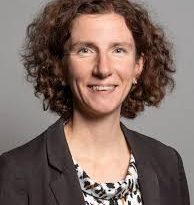Maria Eagle – 2020 Speech on Free School Meals
Below is the text of the speech made by Maria Eagle, the Labour MP for Garston and Halewood, in the House of Commons on 16 June 2020.
I am very glad that the Government have reversed their decision not to continue to fund free school meals through the long summer holiday, despite the amendment on the Order Paper, which I am glad they are not moving—we would not have thought that it was even there, listening to some of the interventions from Government Members. That was the least that they could do.
I would like to thank and congratulate Marcus Rashford, the talented young footballer who has spoken so powerfully from his own experience and who has repeatedly put his money where his mouth is, supporting FareShare financially during the covid crisis and writing to all Members of the House to urge them to support reinstating free school meals over the summer. He has just won his first political campaign.
I know how much football fans in my city of Liverpool —through the efforts of Fans Supporting Foodbanks, led, inter alia, by my hon. Friend the Member for Liverpool, West Derby (Ian Byrne)—have done to support those facing hunger. They have been at the forefront of efforts to alleviate the spiralling increase in hunger and food poverty caused by austerity and the covid crisis. They have been supported financially by players during the covid crisis too, to ensure that they can continue to do their work and be the bulwark against hunger that they are.
Siobhain McDonagh
Is my hon. Friend aware of the great activities of AFC Wimbledon, whose fans stand outside 22 stores a day and deliver 1,300 food parcels each week? They are a small team with an incredibly big heart.
Maria Eagle
They always have been that. I was not aware of those numbers, but I am now.
For many years—from the Front Bench when I was on it, and now from the Back Benches—I have highlighted the ever increasing food poverty crisis that my constituents have been enduring, driven by savage cuts in public spending and support for families. The nature of the job market, which is dominated by insecure work, low pay, short-hours and zero-hours contracts, has been one of the drivers of increasing food poverty, but it has been made much worse by the covid crisis.
Ms Angela Eagle
I thank my honourable and sororal twin for giving way. Does she agree that the state of the labour market and the precarious nature of much work is one of the most shameful legacies of the Conservative party?
Maria Eagle
I do agree with that analysis, as it happens, but I would have to agree in any event in order to keep the peace in the family, even at a distance. My hon. Friend is correct. Precariousness in the labour market—particularly under-employment, as it used to be called, with zero-hours contracts being a prime example—is one of the main causes of the financial instability that leads to the food poverty that I have seen increasing in my constituency over the past 10 years to a remarkable degree. It has been made much worse by the covid crisis. Children are the most innocent victims of that. In the past three Parliaments, I have repeatedly seen incomprehension on the faces of Ministers. They have not seemed to accept that there is a real problem of hunger out there when I and other hon. Members on the Opposition Benches have pointed it out to them, but there is. It was real and growing before covid. It is bigger and starker now.
Free school meals are a direct way to tackle food poverty for children in normal times, but what if the schools are closed or the parents’ income has been removed while their bills remain or are at best deferred? That is what the covid crisis has done. Some 18,000 children are eligible for free school meals in Liverpool, including more than 3,500 in my constituency. Some 29%—close to a third—of all children in my constituency live in poverty.
There are two other problems: first, that things are getting worse, and secondly, that the capacity of local authorities to assist has been systematically undermined and is diminishing rapidly because of Government policies. Before the covid crisis, unemployment in my constituency was at 4.5%. Today’s figures show that the claimant count has almost doubled in two months to 7.9%, which is above the national average. A further 11,500 jobs are furloughed, which is some 18% of the working-age population in my constituency, and 2,600 people are taking up support from the self-employment income support scheme.
Those schemes are valued and important, and I congratulate the Government on instituting them, but many of those livelihoods will be severely at risk over the next two to three months as the Government schemes are brought to an end. Liverpool city region research and other research into the job situation in the Merseyside area suggests that up to a quarter of all jobs are at risk as a fallout of the economic consequences that we are suffering because of covid. The reality is that unemployment in my constituency is likely to be even higher soon.
Unemployment over 10% and a quarter of jobs at risk of going—that reminds me of something. It reminds me of the early 1980s in Liverpool, which was truly the worst of times. I remember it; I was there. Many of my constituents are now in desperate need, having found themselves unemployed with bills still to pay and a financial reckoning heading straight towards them.
In many areas, queues formed quickly outside retail outlets yesterday, as non-essential shops began to reopen, but I am told that the longest queue that formed in Knowsley was outside a local pawnbrokers. There has been a 389% increase there in universal credit applications since before covid. As universal credit is a passport benefit to free school meals, the need is obviously increasing hugely.
Meanwhile, the ability of Liverpool City Council and Knowsley Council to respond and provide extra help is being removed by a Government who have not even kept their own promise at the beginning of the crisis to pay councils the full cost of covid. Far from being paid back what they have paid out, both councils in my constituency have received only about half the costs incurred. That is a recipe for removing their ability to further help children in need as the crisis of child hunger worsens.
In Liverpool, the council was spending £108,000 a week funding a £10 voucher for children eligible for free school meals. It is a good job that it did, because the chaos engendered at the beginning of the Government’s scheme meant that Government vouchers were not forthcoming for weeks. Last year, the council spent a quarter of a million pounds providing city-wide play schemes that included food for the children using them across the city. It is not clear if it will be able to do that in 2020 because of the financial shortfall. In Knowsley, the council has spent £360,000 funding meal vouchers for children, which it will not get back from the Government.
During the lockdown, local councillors in Knowsley and Liverpool have overwhelmingly used their discretionary funds and their volunteering time to feed people, including children. That is all in addition to the food provided, eventually, by the Government’s shielding scheme. The Torrington Drive Community Association in Halewood has delivered more than 2,000 meals and is currently delivering 120 meals, three times a week, including 150 packed lunches for children. In Belle Vale, 2,600 food packs have been given out at three distribution centres, with new families still coming in and asking for help. In Cressington, local councillors have spent £9,000—all of their discretionary funds—simply feeding people, including children, who need support, with the help of Can Cook kitchen, a food poverty charity, whose work I have highlighted before. Yes, I am glad that the Government have seen sense, and have decided to give help that will feed children over the summer holidays; it will be given directly to their parents in the form of vouchers. The Government should not, as some of their Members were close to doing, equate poverty with fecklessness. It is wrong to do so, and I know that the Secretary of State will not fall into that trap.
The Government need to step up to the challenge of making sure that the next few years in Liverpool are not a rerun of the early 1980s. They could begin by giving Liverpool City Council and Knowsley Borough Council the full costs of covid, as they promised they would. In the longer term, they must address the underlying causes of holiday hunger, child poverty, low wages and insecure work. It is only when they do so that this problem will truly be solved.


